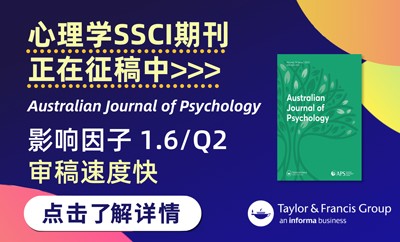-
Climate Change, Innovation Efficiency, and Shareholder Wealth: Insights From the Paris Agreement Bus. Strategy Environ. (IF 13.3) Pub Date : 2025-04-21 Viput Ongsakul, Pattanaporn Chatjuthamard, Pornsit Jiraporn, Sang Mook Lee
We examine the impact of innovation efficiency on shareholder value in the context of climate change, using the novel research quotient (RQ) metric. The adoption of the Paris Agreement provides a unique setting to assess the effect of R&D productivity on stock market reactions. Our findings reveal that lower innovation efficiency, as measured by RQ, positively impacts cumulative abnormal returns (CARs)
-
Silos and Sustainability: How the Permeability of Organizational Boundaries Shapes Corporate Sustainability Integration Bus. Strategy Environ. (IF 13.3) Pub Date : 2025-04-20 Esben Rahbek Gjerdrum Pedersen, Luigi Tiburzi, Francesco Rosati, Roberta Costa, Armando Calabrese
The aim of this study is to examine how the permeability of organizational boundaries shapes corporate sustainability (CS) integration. The literature suggests that CS should be integrated throughout the organization and in its relationships with key, external stakeholders, but limited knowledge exists on the relationship between CS integration and the characteristics of the multiple, co‐existing boundaries
-
The Environmental Policy and the Circular Economy Adoption: An Empirical Study of Manufacturing Companies Bus. Strategy Environ. (IF 13.3) Pub Date : 2025-04-19 Marek Ćwiklicki, Barbara Pawełek
This study investigates the relationship between the environmental policy and manufacturing companies' adoption of a circular economy (CE). By examining environmental policy through the lens of CE strategies and environmental management systems (EMSs), the research highlights their correlation with the intensity of realised CE practices, positioning them as key antecedents of the circular transition
-
Sustainable Energy Provision at the Bottom of the Pyramid: Blueprint for Early Repurposing Business Models Using Second‐Life Batteries Bus. Strategy Environ. (IF 13.3) Pub Date : 2025-04-19 Arne Jeppe, Heike Proff
This study presents a blueprint for an early‐stage business model focused on repurposing second‐life electric vehicle (EV) batteries for solar‐energy storage in Bottom of the Pyramid (BoP) markets. Addressing the critical need for affordable and sustainable energy solutions there, the research integrates principles of strategic and innovation management, international management at the BoP, and management
-
Audit Committees and the Quality of Standalone Sustainability Reporting, Considering the Moderating Role of External Assurance: Evidence From the Global Chemical Industry Bus. Strategy Environ. (IF 13.3) Pub Date : 2025-04-15 Krayyem Al‐Hajaya, Eba'a Amjed Almahameed, Nedal Sawan, Mohammad Saleh Altarawneh, Ahmed Eltweri, Rami Salem
Sustainability reporting and its assurance are increasingly becoming globally mandatory, alongside the issuance of international standards for sustainability assurance aimed at boosting the confidence and trust of investors, regulators and other stakeholders in sustainability‐related disclosures. The objective of this paper is to investigate how the interplay between external assurance and an effective
-
Utilising Artificial Intelligence to Enhance Firm Circular Economy Maturity: A Thematic Review via Machine Learning Bus. Strategy Environ. (IF 13.3) Pub Date : 2025-04-15 Donghao Huang, Yuanzhu Zhan, Chris Lonsdale
Despite the environmental imperative of a transition to a circular economy (CE), the current literature finds that globally firms are being slow to engage with such a transition. In this context, our thematic review explores how artificial intelligence (AI) might accelerate firm CE transition. In a departure from the dominant approach that adopts the product life cycle as the unit of analysis, the
-
EXPRESS: The Power of Proximity: Exploring Narrative Language in Consumer Reviews Journal of Marketing (IF 10.4) Pub Date : 2025-04-15 Anne Hamby, Brent McFerran, Christie Fuller
Marketers know the importance of online reviews, but what can be done to improve the prompts asking consumers to review? Across eight studies, the present work shows that a prompt that encourages writing reviews for a close audience enhances consumers’ use of narrative language. A growing body of literature reveals that narratives are powerful persuasive devices for shaping audiences’ beliefs, including
-
Family Control and Sustainable Competitive Advantage Family Business Review (IF 5.6) Pub Date : 2025-04-15 Hanqing “Chevy” Fang, Josip Kotlar, James J. Chrisman
Shifting the attention from temporary to enduring competitive advantage, we theorize that family control of a business is a source of family-specific isolating mechanisms. These isolating mechanisms are based on path-dependent, socially complex, and inseparable resources that jointly enhance family firms’ ability to sustain competitive advantages vis-à-vis nonfamily firms. Longitudinal analyses of
-
Circular Economy in the Construction Industry: Barriers and Drivers for the Implementation of Circularity in Family‐Owned Construction Companies in Germany Bus. Strategy Environ. (IF 13.3) Pub Date : 2025-04-14 Elena Elisabeth Vollmers, Thomas B. Long
The circular economy can enhance business sustainability, but its implementation requires the integration of circularity into business models. Circular business model innovation (CBMI) is complex, influenced by multiple barriers and drivers. This research conducts a qualitative case study via semistructured interviews to explore CBMI within the German construction industry and family‐owned businesses
-
Are Retail Consumers Willing to Pay for All Circular Products? A Study on Consumer Perception of the Circular Economy in Retail Bus. Strategy Environ. (IF 13.3) Pub Date : 2025-04-14 Agnes Toth‐Peter, Sadia Cheema, Rui Torres de Oliveira, Tam Nguyen
The planetary crisis, stemming from overconsumption and unsustainable production patterns, necessitates a shift towards balanced economic, environmental and social growth. The circular economy presents a promising solution by promoting material recirculation. While its success relies on collaboration among various stakeholders, consumers are crucial for accepting circular economy products and business
-
Transforming Organizational Readiness Into Green Innovation: The Crucial Roles of Green Knowledge Management and Environmental Culture Bus. Strategy Environ. (IF 13.3) Pub Date : 2025-04-14 Asier Baquero
Grounded in the resource‐based view and dynamic capabilities theory, this study investigates the interplay between organizational readiness (OR), green knowledge management (GKM) and environmental organizational culture (EOC) in fostering green innovation (GI). This study uses data collected from 340 respondents across 159 UAE SMEs and employs a quantitative approach using partial least squares structural
-
Corporate Climate Risk and Membership of Emission Trading Schemes Bus. Strategy Environ. (IF 13.3) Pub Date : 2025-04-14 Gbenga Adamolekun, Ammar Ahmed, Nana Abena Kwansa, Rodiat Lawal, Rilwan Sakariyahu
Using a sample of 5364 firms from 65 countries, we demonstrate that membership in the scheme increases firm climate risk. Further analysis reveals that the positive impact of membership on climate risk is pronounced among firms in carbon‐intensive industries. Our findings demonstrate that continental differences and legal origin could moderate or exacerbate the relationship between emission trading
-
Propelling the Transition to Circular Economy: Exploring the Role of Corporate Circular Economy Performance‐Based Incentive Policy Bus. Strategy Environ. (IF 13.3) Pub Date : 2025-04-14 Emmanuel A. Morrison, Douglas A. Adu, Danson Kimani
This study examines the impact of executive compensation (EC) and corporate circular economy performance incentives (CCEPI) on corporate circular economy initiatives (CCEI) and corporate circular economy performance (CCEP) by integrating legitimacy theory and the resource‐based view. Despite increasing attention to sustainability, there is limited understanding of how governance mechanisms, such as
-
Pathways to a Sustainable Blue Economy: Exploring Its Barriers in an Emerging Economy Bus. Strategy Environ. (IF 13.3) Pub Date : 2025-04-14 Koppiahraj Karuppiah, Jose Arturo Garza‐Reyes, Naveen Virmani
A sustainable blue economy is primarily intended for responsible consumption of ocean resources, achieving economic growth, and strengthening the overall ecosystem. The roots of the blue economy are embedded in sustainable development, exploiting opportunities for economic welfare and growth, simultaneously focusing on conserving marine health. A sustainable blue economy helps protect and restore ocean
-
A whole new world, a new fantastic point of view: Charting unexplored territories in consumer research with generative artificial intelligence J. Acad. Mark. Sci. (IF 10.1) Pub Date : 2025-04-11 Kiwoong Yoo, Michael Haenlein, Kelly Hewett
Integrating generative artificial intelligence (AI), particularly large multimodal models (LMMs) like ChatGPT, into the research process offers significant opportunities for marketing scholars. This manuscript provides a field guide into the potential advantages and possible limitations of using LMMs in different stages of consumer research, including idea generation, theory development, pretesting
-
-
Towards a dynamic theory of lateral collaboration across multinational enterprise structures: A collection of insights Journal of World Business (IF 8.8) Pub Date : 2025-04-11 Andreas P.J. Schotter, Martha Maznevski, Günter K. Stahl, Yves Doz
Achieving lateral collaboration benefits across multinational enterprise structures is elusive. Especially amid increasing international environmental complexities, prior research suggests that less hierarchical and more agile global collaboration arrangements are critical for organizational success. Drawing on extant work and six essays in this collection of recently published papers, we advance theory
-
Revisiting the liability of foreignness: political ideology, globalization, and discrimination J. Int. Bus. Stud. (IF 9.0) Pub Date : 2025-04-09 Yulia Muratova, Charles Dhanaraj, Liudmyla Svystunova
Equal treatment of foreign and local firms is the cornerstone of international investment law. Yet, why do foreign firms face discrimination in host countries? We analyze this critical but underexplored aspect of the liability of foreignness in two stages. First, drawing on the insights from political science, we argue that the political ideology of the host government along the left-right spectrum
-
Salesperson pricing discretion: Exploring the contingent effects and customer outcomes J. Acad. Mark. Sci. (IF 10.1) Pub Date : 2025-04-10 Amalesh Sharma, Tarun K. Sharma, Wyatt A. Schrock, Eli Jones
There is tension among practitioners regarding whether to offer salesperson-level pricing discretion beyond discounts in B2B sales, with the literature providing mixed evidence. Using a multi-study approach, we explore the dynamics surrounding salesperson pricing discretion, addressing crucial gaps within the existing pricing discretion literature, especially concerning the contingent factors that
-
Restoring Food System Resilience in a Turbulent World: Supply Chain Actors' Shared Responsibility Bus. Strategy Environ. (IF 13.3) Pub Date : 2025-04-10 Steffen Hirth, Elizabeth Morgan, Gülbanu Kaptan, Romain Crastes dit Sourd, Anne Tallontire, William Young, Michael Winter
Ecological and economic crises increasingly affect the long‐term resilience of the food supply chain. This qualitative study draws on semistructured interviews and public evidence to analyse the perspectives of British supply chain actors. Asking which pathways towards food system resilience arise and which forms of social and environmental governance they require, the aim is to elucidate power relations
-
The Impact of Digital Transformation on the Sustainable Performance of Organizations: A Configurational Approach Bus. Strategy Environ. (IF 13.3) Pub Date : 2025-04-09 Manting Luo, Jiabao Lin, Xin (Robert) Luo
Sustainable development has emerged as a critical concern globally, and digital transformation holds enormous potential for advancing the sustainable development of organizations. However, the relationship between digital transformation and sustainable performance remains largely unclear. To gain an in‐depth understanding of this relationship, we explore the effects of digital transformation dimensions
-
The Strategic Role of Circular Economy Innovations and Stakeholder Engagement in Advancing Responsible Production and Consumption Bus. Strategy Environ. (IF 13.3) Pub Date : 2025-04-08 Li KaoDui, Maxwell Kongkuah
As the urgency of global sustainability goals intensifies, achieving responsible production and consumption (RPC) has become a critical priority, especially in emerging markets where economic growth must be balanced with environmental stewardship. Businesses play a pivotal role in advancing sustainability, and understanding how governance practices influence RPC is essential for aligning corporate
-
Transparency or Map‐Washing? Digital Geospatial Visualisation Tools in the Palm Oil Industry Bus. Strategy Environ. (IF 13.3) Pub Date : 2025-04-08 Rory Padfield, Suzana Matoh, Adam Tyson, Chee Wong, Gemma Bridge, Alexandra Dales
We introduce the notion of map‐washing and ask whether digital geospatial visualisation (DGV) tools distort information or provide greater supply chain transparency. Map‐washing explains a process of disclosing spatial information that has little or no value to the intended users, but rather creates, conforms to or distorts a particular narrative. In the context of advancements in satellite technology
-
Imputing missing values in IB research using endpoint-heterogeneous beta regression models: An application to Hofstede's LTO measures Journal of World Business (IF 8.8) Pub Date : 2025-04-08 Eugene D. Hahn, Jonathan P. Doh
Addressing missing values in empirical research is a longstanding issue and challenge for scholars in all disciplines. In International Business, the challenge has typically been met with an array of strategies, ranging from listwise deletion to more sophisticated approaches, including regression-based imputation. Current models for addressing missing values where data is bounded have several limitations
-
Intra‐firm work experiences and corporate venturing by employees: The roles of job specialization and functionally diverse groups Strateg. Entrep. J. (IF 6.3) Pub Date : 2025-04-06 Xu (Henry) Han, Martine R. Haas
Research SummaryTaking a strategic human capital perspective on corporate venturing by employees, we consider the potential influence of their job and group experiences within the firm. Because building new ventures requires diverse functional knowledge, greater job specialization could create a barrier to undertaking corporate venturing. However, working in more functionally diverse groups within
-
Founder regulatory focus: Effects on entrepreneurial orientation and venture performance Strateg. Entrep. J. (IF 6.3) Pub Date : 2025-04-06 Stephen E. Lanivich, Samuel Adomako, James M. Vardaman, Francis Donbesuur, Jintong Tang
Research SummaryThis article draws upon regulatory focus theory to examine the ways in which founders influence entrepreneurial orientation and performance in young ventures. Findings from studies of young ventures in Ghana (N = 226) and Kenya (N = 205) suggest that founder promotion focus has a positive effect on entrepreneurial orientation, while founder prevention focus has a negative effect. Furthermore
-
Calculating and reporting degrees of freedom in structural equation modeling: an empirical generalization study J. Int. Bus. Stud. (IF 9.0) Pub Date : 2025-04-05 Bo Bernhard Nielsen, Jose M. Cortina
-
Accounting and Accountability in the Transition to Zero‐Carbon Energy for Climate Change: A Systematic Literature Review Bus. Strategy Environ. (IF 13.3) Pub Date : 2025-04-05 Assunta Di Vaio, Meghna Chhabra, Anum Zaffar, Daniel Balsalobre‐Lorente
This study investigates the body of literature on decarbonization management practices that use renewable resources and green technologies to meet zero‐carbon energy targets for achieving Sustainable Development Goal (SDG) 13 to ‘Take urgent action to combat climate change and its impacts’. Starting with the ongoing discussion surrounding the development of an information architecture to support effective
-
From Diversity to Confusion? The Challenge of Biodiversity Footprint Quantification Bus. Strategy Environ. (IF 13.3) Pub Date : 2025-04-04 Raphaela Roeder, Sebastian Utz
This study documents a significant disagreement between the biodiversity footprints of three major providers. This disagreement mainly stems from fundamental disagreement on the underlying methods and data (measurement), while providers agree to a large part on which firm operations contribute to a loss in biodiversity and how they are aggregated (scope and weight). The disagreement is especially high
-
Exploring the ESG‐Circular Economy Nexus in Emerging Markets: A Systems Perspective on Governance, Innovation, and Sustainable Business Models Bus. Strategy Environ. (IF 13.3) Pub Date : 2025-04-04 Andrew Osei Agyemang, Abednego Osei, Maxwell Kongkuah
As businesses increasingly integrate sustainability into corporate strategy, the role of environmental, social, and governance (ESG) disclosure in driving circular economy (CE) adoption has garnered significant attention. However, the mechanisms through which ESG disclosure facilitates CE transitions remain underexplored, particularly in emerging economies such as sub‐Saharan Africa (SSA). This study
-
Open for Green New Product Development: A Voluntary Approach to Green Process Innovation Bus. Strategy Environ. (IF 13.3) Pub Date : 2025-04-04 Hoàng Thu Thảo, Lưu Trọng Tuấn
Prioritizing greenness in new product development (NPD) has been an integral part of manufacturers' strategic choices to achieve sustainable goals. This research aims to unravel the mechanisms through which firms with external search activities can foster green NPD. The data was obtained from 254 manufacturers located in Vietnam. The results revealed the crucial role of external search in promoting
-
Sustainable Pathways to Circular Economy Adoption: Insights From the RMG Sector of Bangladesh Bus. Strategy Environ. (IF 13.3) Pub Date : 2025-04-04 Naznin Sultana Chaity, K. M. Zahidul Islam, Abdullah Al Masud, Mohammad Fakhrul Islam, Md. Kazi Hafizur Rahman, Shahria Bin Kabir
This study explores the role of sustainability practices in facilitating the adoption of a circular business model within the readymade garment (RMG) sector in Bangladesh. Specifically, the study wants to investigate how green supply chain practices (GSCPs), green investment (GI), and green human capital (GHC) contribute to ensuring sustainability practices in RMG (SRMG) and transitioning businesses
-
The expectations game: The contingent value of hype as a rhetorical strategy in resource mobilization processes among AI startups J. Bus. Venturing (IF 8.9) Pub Date : 2025-04-04 Judy Rady, David Townsend, Rick Hunt, Joseph Simpson
Technology startups confront a critical dilemma when attempting to use hype to mobilize resources under conditions of extreme uncertainty. While some scholars argue that high levels of hype play a key role in securing resources to fund startup growth, others caution that the excessive use of hype risks triggering investor skepticism, thereby undermining the extent to which investors judge a startup's
-
Gender and ethnic diversity and international success of Hollywood movies Journal of World Business (IF 8.8) Pub Date : 2025-04-04 Chinmay Pattnaik, Madhumita Nanda, Qiang (Steven) Lu
Does greater social inclusion and diversity lead to better commercial outcomes in cultural industries? We explore this research question in the context of Hollywood by examining how gender representation and ethnic diversity in movie casts influence international box office success. Our findings, based on data from 2000 to 2021 for >3000 Hollywood movies, suggest that gender diversity positively impacts
-
Sustainable entrepreneurship and knowledge management: Role of green information technology in building sustainable entrepreneurial ecosystems J. Innov. Knowl. (IF 15.5) Pub Date : 2025-04-03 Muhammad Sadiq, Thuy Dung Pham Thi, Chi Minh Nguyen, Hai-Dung Do
Using green management practices to build sustainable entrepreneurship is both effective and challenging for growing businesses. Meanwhile, knowledge management has proven to be a critical part of contemporary business practices. Thus, there is a growing demand for socially and environmentally aware behaviour as a part of existing strategies for dealing with the effects of such practices in the realm
-
From green to growth: The effect of Go Green on entrepreneurial growth aspirations J. Bus. Venturing (IF 8.9) Pub Date : 2025-04-03 Xiaolong Shui, Julia Korosteleva, Bach Nguyen
This paper examines the effect of small- and medium-sized enterprises' (SMEs') pursuit of Go Green attitudes, characterized by the inclusion of environmental objectives in their strategic planning, on their entrepreneurial growth aspirations (EGAs) through the theory of planned behavior. We theorize that embracing Go Green attitudes can lead to heightened growth intentions; however, the positive relationship
-
Networks for scaling businesses: Accessing international support webs for critical support resources Journal of World Business (IF 8.8) Pub Date : 2025-04-03 Vanessa P.G. Bretas, Esther Tippmann, Jonathan Levie
Entrepreneurial ventures benefit from breaking out of structural localism to access external supports as they scale their businesses. However, there is limited theory development on how internationally scaling businesses access external supports. By adopting an entrepreneurial network perspective to study the support system for internationally scaling businesses located in Ireland, we identify an international
-
Measures for Energy Efficiency and Shadow Pricing in the Manufacturing Sector of EU Countries Bus. Strategy Environ. (IF 13.3) Pub Date : 2025-04-02 Tomas Balezentis, Dalia Streimikiene, Zhiyang Shen
The manufacturing sector is important for the rest of the economy. However, this sector is also an energy‐intensive one and subject to policies of climate change mitigation. The European Union (EU) has embarked on sustainability and competitiveness policies that require increasing the environmental performance of the economy. This paper focuses on the environmental performance of the manufacturing
-
ESG Disclosure and Access to Credit: A Configurational Analysis of European Listed Firms Bus. Strategy Environ. (IF 13.3) Pub Date : 2025-04-02 Carmen Gallucci, Rosalia Santulli, Riccardo Tipaldi
This study investigates how various ESG disclosure configurations affect credit access for European firms listed on the STOXX Europe 600 Index during 2021–2022. Employing fuzzy‐set qualitative comparative analysis and ESG disclosures standardised under the Global Reporting Initiative (GRI), the findings demonstrate that disclosure patterns associated with enhanced credit access vary between short‐
-
EXPRESS: Owners’ Willingness to Accept in the Sharing Economy Journal of Marketing (IF 10.4) Pub Date : 2025-04-02 Gretchen R. Ross, Eunice Kim, Margaret G. Meloy
The sharing economy has become an increasingly widespread way for peers to rent out their owned goods to others seeking to rent them. This research investigates how providers (i.e., owners renting out their belongings) decide what price to charge, and identifies the provider WTA effect , where in the context of a peer-to-peer (P2P) collaborative consumption model, providers are willing to accept (WTA)
-
EXPRESS: Strategic Change Capability in Marketing Organizations: Conceptualization, Scale Development, and Validation Journal of Marketing (IF 10.4) Pub Date : 2025-04-02 Georgios S. Bekos, Simos Chari, Matti Jaakkola, Heiner Evanschitzky
In dynamic and uncertain business environments, marketing organizations need to be constantly ready to enact strategic changes. However, a robust measure for capturing the organizational capabilities and underlying marketing activities required to achieve effective marketing-related strategic changes is lacking. This study addresses this gap by developing a measurement tool for strategic change capability
-
Downward spiral of firms’ political strategies in conflict zones: A process analysis of an MNE's operations during an active civil war Journal of World Business (IF 8.8) Pub Date : 2025-04-02 Nathalie Belhoste, Anna Dimitrova
Applying resource dependence and process theory to an in-depth case study of a French MNE that maintained operations in Syria despite the civil war, we provide a processual and multilevel analysis of how political strategies evolve in response to civil war dynamics and complexity. We show that strategies are mainly conditioned by the firm's interactions and interdependencies with non-state armed groups
-
From Attitude to Action: A Moderated Mediation Model for the Engagement of Green Attitude, Green Impulse Buying, and Consumer Citizenship Behavior Bus. Strategy Environ. (IF 13.3) Pub Date : 2025-04-01 Khizar Hayat, Qingyu Zhang, Maria Jose Sousa
The escalating concerns surrounding global climate change and environmental degradation, alongside a growing emphasis on societal well‐being, have encouraged consumers to adopt environmentally conscious shopping practices. This study aims to investigate the mechanisms through which pro‐environmental attitudes influence sustainable consumption behaviors by examining the interplay among green attitudes
-
Are entrepreneurs more upwardly mobile? J. Bus. Venturing (IF 8.9) Pub Date : 2025-04-01 Matthew J. Lindquist, Theodor Vladasel
Entrepreneurship is often hailed as a path to upward intergenerational mobility, but few studies have explicitly tested this belief. Drawing on insights from the literature on entrepreneurial heterogeneity and returns, we compare the extent and direction of mobility across generations among Swedish entrepreneurs and employees. We study intergenerational income rank mobility using high-quality lifetime
-
Cultivating innovative behaviors: How entrepreneurial leaders foster employees’ antifragility within autonomous work settings J. Innov. Knowl. (IF 15.5) Pub Date : 2025-03-31 Mashael Malibari, Saleh Bajaba, Abdulah Bajaba, Abdulrahman Basahal
Entrepreneurial leadership has emerged as a key driver of innovation, yet the underlying mechanisms remain less understood. The current study, grounded in social cognitive theory and social learning theory, examines the role of entrepreneurial leadership in fostering innovative behavior among employees in autonomous work settings, with a particular focus on employee antifragility. It theorizes that
-
Regional Environmental Protection Investments, Cluster Ecosystems, and Firm Innovation: Evidence From Germany Bus. Strategy Environ. (IF 13.3) Pub Date : 2025-03-31 Yama Temouri, Ha‐Phuong Luong, Vijay Pereira, Hussain Rammal
This paper presents an exploration of how regional environmental protection investments (EPIs) and cluster ecosystems affect the innovation performance of research and development (R&D) firms versus non‐R&D firms across regions in Germany. We develop a conceptual framework to elucidate the relationship between regional EPIs, cluster ecosystems, R&D decisions, and innovation performance of firms. We
-
AI‐Powered Sustainable Tourism: Unlocking Circular Economies and Overcoming Resistance to Change Bus. Strategy Environ. (IF 13.3) Pub Date : 2025-03-31 Hwang Bang‐Ning, Siriprapha Jitanugoon, Pittinun Puntha
This study examines the integration of artificial intelligence (AI) with circular economy (CE) principles in Thailand's tourism industry. It explores the interactions between AI‐Enhanced Predictive Waste Analytics (AI‐PWA), Regenerative Resource Integration (RRI), Dynamic Material Flow Optimization (DMFO), and AI‐Induced Resistance to Change (AIRC). Using a mixed‐methods approach, qualitative insights
-
Sustainability Performance and Its Impact on Financial Distress Risk—Evidence From STOXX Europe 600 Bus. Strategy Environ. (IF 13.3) Pub Date : 2025-03-30 Marcel Seefloth, Florian Siedler, Christoph Kayser, Benedikt T. Retsch, Henning Zülch
Sustainability performance (SP) has emerged as a central topic on both corporate and political agendas worldwide. This study investigated the relationship between SP and financial distress risk (FDR) among European listed firms, addressing the growing importance of SP in financial decision‐making. Utilising a panel dataset from LSEG Data & Analytics (formerly Refinitiv) for STOXX Europe 600 firms between
-
New Solutions for Old Problems: Exploring Business Model Innovation in Food Sharing Platforms Bus. Strategy Environ. (IF 13.3) Pub Date : 2025-03-30 Cecilia Grieco, Alberto Morgante
Food insecurity and food waste are among the main contemporary global challenges facing us. Although problematic for societies over a long period, their greater prominence in the post‐pandemic scenario makes the need to find appropriate solutions, at both supply and consumption levels, increasingly urgent. Thus, while not new, there has been a recent surge of interest in these phenomena due to the
-
The past, present, and future of adaptive selling: Toward an integrative framework J. Acad. Mark. Sci. (IF 10.1) Pub Date : 2025-03-28 Nawar N. Chaker, Rhett T. Epler, Gabriel Moreno, Dana Amiri, Elizabeth G. McDougal, Jay O’Toole
Adaptive selling represents a notable and influential concept in the marketing literature. Despite being discussed in scholarly research and managerial practice for over forty years and mixed findings about its impact, a comprehensive understanding of the construct of adaptive selling remains missing. To remedy this critical knowledge gap, we conduct a comprehensive review of 188 articles across twenty-seven
-
Successful commercialisation in startup accelerator programmes: How different startup ecosystems matter J. Innov. Knowl. (IF 15.5) Pub Date : 2025-03-28 Farzaneh Eslamloo, Kerry Brown, Zahra Amrollahi Biyouki
This study examined the influence of the Western Australian and Iranian startup ecosystem contexts, including the powers and liabilities that determine startups’ commercialisation outcomes. By utilising a theoretical framework based on programme evaluation, explanatory theory building, and critical realism, a cross-contextual comparison study was conducted. The study showed that the context of startup
-
Sustainability Orientation, Sustainability Implementation, and Brand Image in Service Firms Bus. Strategy Environ. (IF 13.3) Pub Date : 2025-03-28 Sandeep Jagani, Vafa Saboori‐Deilami
This paper uses legitimacy theory and cognitive dissonance theory to explore the relationship between sustainability orientation, sustainability implementation, and brand image in the service sector. Specifically, we examine the mediating role of implementation—the translation of strategic intent into actionable practices—on customers' perceptions. Using multilevel analyses of 31 US service firms and
-
Unveiling the Relationship Between ESG and Growth of Unlisted Firms: Empirical Insights From Eastern Europe and Central Asia Bus. Strategy Environ. (IF 13.3) Pub Date : 2025-03-28 Nosheen Rasool, Murugesh Arunachalam, Nirosha Hewa Wellalage, Vijay Kumar
This study aims to uncover the empirical relationship between environmental, social and governance (ESG) factors and the growth of 19,956 unlisted firms in the East Europe and Central Asia (EECA) region. While the existing literature focuses on ESG performance in listed firms, there is a gap in understanding the growth dynamics of unlisted firms in EECA, which face challenges in implementing ESG initiatives
-
To invest or not to invest the business Angel´s dilemma J. Innov. Knowl. (IF 15.5) Pub Date : 2025-03-27 Oscar Arroyo-Revilla, Cayetano Medina-Molina, Carlos Bellón Núñez-Mera, Noemí Pérez-Macías
Business Angels (BAs) are pivotal in early-stage funding for entrepreneurship. This study explores the factors influencing BA investment decisions. We propose a theoretical model based on signaling theory to assess the impact of signals about the quality of entrepreneurs and projects on investment assessments and decisions. Using qualitative comparative analysis (QCA) on 88 survey responses from BAs
-
Dynamic interactions between entrepreneurial domains and outcomes: The evolution of innovation ecosystems J. Innov. Knowl. (IF 15.5) Pub Date : 2025-03-27 Caterina Lucarelli, Nicoletta Marinelli, Alessandra Micozzi, Maria Zifaro, Maria Palazzo, Antonella Ferri
The actors and components of an entrepreneurial ecosystem coexist and interact continuously, leading to many mutual relationships. Existing studies favour a static approach to the investigation of innovation ecosystems, frequently neglecting the chains of connections between ecosystem domains and business results. This study attempts to fill this gap by studying the causality connections within innovation
-
Future Pathways for Net Zero Emission: Analyzing the Nexus of Entrepreneurship and Ecological Sustainability Development in Developed Economies Bus. Strategy Environ. (IF 13.3) Pub Date : 2025-03-27 Mehmet Levent Erdas, Abdullah Emre Caglar, Emmanuel Uche, Zahoor Ahmed
This study aims to investigate the impact of entrepreneurship and green investments on environmental sustainability within the scope of Sustainable Development Goals for developed economies. The study conducts an in‐depth analysis from 2001 to 2022 and reveals the possible effects of increases and decreases in entrepreneurship. Based on the results of the empirical analysis, an asymmetric relationship
-
Does Sustainable Performance Matter for Nonfinancial Disclosure Readability? A Fog Index Analysis on Italian‐Listed Companies Bus. Strategy Environ. (IF 13.3) Pub Date : 2025-03-26 Giuseppe Maria Bifulco, Carlo Caserio, Francesca di Donato, Sara Trucco
This study aims to shed light on how corporate sustainable performance can influence the degree of nonfinancial disclosure (NFD) readability, determining which pillar of environmental, social and governance (ESG) performance has the most significant impact. To address these research questions, the study was conducted on a sample of Italian companies listed between 2017 and 2022, following the introduction
-
Building a Green Business: Exploring the Role of Organizational Culture and Human Resource Management Through a Case Study Approach Bus. Strategy Environ. (IF 13.3) Pub Date : 2025-03-26 Kristina Zabala, Carmela Peñalba‐Aguirrezabalaga, Lorea Narvaiza, Arantza Zubiaurre
The pursuit of sustainability has evolved into a compelling imperative for companies. Understanding the intricate interplay of “human‐side” factors in the construction of a green business has recently gained momentum. The present study explored the role of organizational culture (OC) and human resource management (HRM) practices in building a green business. An in‐depth case study identified three
-
Prevention Is Better Than Cure? Climate Mitigation and Adaptation Patents and Firm Performance Bus. Strategy Environ. (IF 13.3) Pub Date : 2025-03-26 Pankaj C. Patel
Drawing on recombinant uncertainty theory and using panel data regression analysis with firm, state, and industry fixed effects, we examine how stock markets react to firms' climate‐related patent approvals. We find a positive stock market response to mitigation patents but no reaction to adaptation patents. The patent technological breadth and patents in Rapidly Evolving Technology (RETech) enhance
-
Driving Circular Economy Strategies for Sustainable Development: The Role of Board Capital and Innovation Capacity in Emerging Markets Bus. Strategy Environ. (IF 13.3) Pub Date : 2025-03-26 Ishmael Wiredu, Naiping Zhu, Andrew Osei Agyemang, Hela Borgi
The transition to a circular economy (CE) is necessary for achieving sustainable development, yet research on governance mechanisms that drive CE strategies remains limited. This study bridges this gap and significantly advances studies CE, board governance, innovation, and sustainability by assessing the critical function of board capital in driving CE strategies within manufacturing companies in















 京公网安备 11010802027423号
京公网安备 11010802027423号